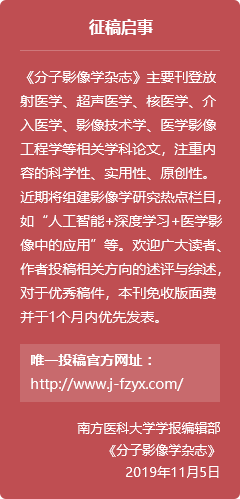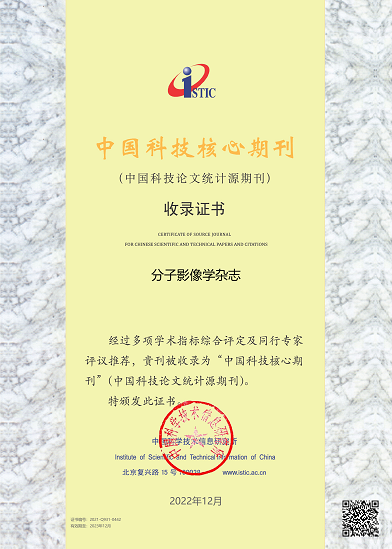Effect of non-specific immune treatment on immunity of Patient with hepatocellular carcinoma after radiofrequency ablation
-
摘要:
目的探讨非特异性免疫治疗对射频消融术后肝细胞癌患者免疫功能的影响。 方法采用流式细胞仪检测分析43例肝细胞癌患者治疗前和行射频消融术并接受非特异性免疫治疗后,外周血中CD4+T细胞、CD8+T细胞、NK细胞比例以及CD4+/CD8+值。 结果行射频消融术并接受非特异性免疫治疗后患者外周血中的CD4+T细胞、NK细胞比例及CD4+/CD8+值均显著高于治疗前(P < 0.05),同时治疗后患者外周血中CD8+T细胞比例显著低于治疗前(P < 0.05)。 结论非特异性免疫治疗可提高射频消融后肝细胞癌患者的免疫功能。 Abstract:ObjectiveTo investigate the effect of radiofrequency ablation combined sequential nonspecific immune treatment on patient with hepatic carcinoma. MethodsBefore and after the radiofrequency ablation combined sequential nonspecific immune treatment, the percentage of CD4+ T cells, CD8+ T cells and NK cells on peripheral blood were evaluated by flow cytometry. ResultsAfter the nonspecific immune treatment, the percentage of CD4 + T cells, NK cells and CD4+/CD8 + ratio were significantly higher than that without treatment and CD8+ was significantly decreased (P < 0.05). ConclusionNon-specific immune treatment can improve the immune function in HCC after RFA. -
Key words:
- liver cancer /
- radiofrequency ablation /
- immune treatment /
- immune function
-
表 1 非特异性免疫治疗前、后肝癌患者外周血T淋巴细胞亚群及NK细胞比较(n=43,x±s)
指标(%) 治疗前 治疗后 P CD4+ 55.92±11.34 58.76±9.95 0.000 CD8+ 39.42±10.60 36.95±9.49 0.000 CD4+/CD8+ 1.58±0.65 1.74±0.65 0.000 NK 19.73±9.01 22.91±12.40 0.049 -
[1] Llovet JM, Bruix J, Gj G. Surgical resection versustransplantation for early hepatocellular carcinoma:clues for the best strategy[J].Hepatology, 2000, 31(4): 1019-21. doi: 10.1053/he.2000.6959 [2] Lencioni R, Cioni D, Donati F, et al. Combination of in-terventional therapies in hepatocellular carcinoma[J]. Hepatogastroenterology,2001, 48(37): 8-14. http://cn.bing.com/academic/profile?id=533bcf1cfa74e849562f9ffad43b8dd7&encoded=0&v=paper_preview&mkt=zh-cn [3] Hanazaki K, Kajikawa S, Shimozawa N, et al. Survival and recurrence after hepatic resection of 386 consecutive patients with hepatocellular carcinoma[J]. J Am Coll Surg, 2000, 191(4): 381-8. doi: 10.1016/S1072-7515(00)00700-6 [4] Goldenberg DM, Langner M. Direct and abscopal antitu-mor action of local hyperthermia[J]. Zeitschr Für Naturforschung, 2014, 26(4):359-61. [5] Zerbini A, Pilli M, Laccabue D, et al. Radiofrequency thermal ablation for hepatocellular carcinoma stimulates autologous NK-cell response[J]. Gastroenterology, 2010, 138(5): 1931-42. doi: 10.1053/j.gastro.2009.12.051 [6] Poulou LS, Ziakas PD, Xila V, et al. Percutaneous radio-frequency ablation for unresectable colorectal liver metasta-ses: time for shadows to disperse[J]. Rev Recent Clin Trials, 2009, 4(3): 140-6. doi: 10.2174/157488709789957592 [7] Bray F, Ren JS, Masuyer E, et al. Global estimates of cancer prevalence for 27 sites in the adult population in 2008[J]. Int J Cancer, 2013, 132(5): 1133-45. doi: 10.1002/ijc.v132.5 [8] Rossi S, Distasi M, Buscarini E, et al. Percutaneous RF interstitial thermal ablation in the treatment of hepatic cancer[J]. AJR Am J Roentgenol, 1996, 167(3): 759-68. doi: 10.2214/ajr.167.3.8751696 [9] Tateishi R, Shiina S, Teratani T, et al. Percutaneous radiofrequency ablation for hepatocellular carcinoma: An analysis of 1000 cases[J].Cancer, 2005, 103(6): 1201-9. doi: 10.1002/(ISSN)1097-0142 [10] 陈敏山,张耀军,李锦清. 射频消融治疗肝脏恶性肿瘤的八年经验总结(附803例报道)[J]. 中华外科杂志, 2007, 45(21): 1469-71. http://cn.bing.com/academic/search?q=%e5%b9%bf%e4%b8%9c%e7%9c%81%e8%82%9d%e8%84%8f%e7%97%85%e5%ad%a6%e4%bc%9a%e5%be%ae%e5%88%9b%e4%b8%93%e4%b8%9a%e5%a7%94%e5%91%98%e4%bc%9a%e5%ad%a6%e6%9c%af%e4%bc%9a%e8%ae%ae%e6%9a%a8%e6%b6%88%e5%8c%96%e9%81%93%e8%82%bf%e7%98%a4%e9%9d%b6%e5%90%91%e6%b2%bb%e7%96%97%e6%96%b0%e6%8a%80%e6%9c%af%e5%ad%a6%e4%b9%a0%e7%8f%ad%e8%ae%ba%e6%96%87%e6%b1%87%e7%bc%96&FORM=AJOUR [11] Llovet JM, Burroughs A, Bruix J. Hepatocellular carcinoma[J].Lancet, 2003, 36(2): 1907-17. [12] Coussens LM, Werb Z. Inflammation and caner[J]. Nature, 2002,420(6917): 860-7. doi: 10.1038/nature01322 [13] Whitson BA, D'cunha J, Hoang CD, et al. Minimally invasive versus open Roux-en-Y gastric bypass: effect on immune effector cells[J]. Surg Obes Relat Dis, 2009, 5(2): 181-93. doi: 10.1016/j.soard.2008.08.019 [14] 李晓宇, 白洁. 细胞自噬与MHCⅡ处理及递呈抗原的相关研究[J].医学综述, 2015, 7(1): 80-3. http://www.cnki.com.cn/Article/CJFDTOTAL-MYXZ201501020.htm [15] 夏桃林, 吴振权. TGF-β1和COX-2对CD4+CD25+调节性T细胞的调控作用[J]. 医学综述, 2010, 16(22): 3390-2. http://www.cnki.com.cn/Article/CJFDTOTAL-YXZS201022012.htm [16] Nakao M, Sata M, Saitsu H, et al. CD4+hepatic cancer-specific cytotoxic Tlymphocytes in patients with hepatocellular carcinoma[J].Cell Immunol, 1997, 177(2): 176-81. doi: 10.1006/cimm.1997.1108 [17] 秦东春, 王海颖, 梅园丁, 等. 原发性肝细胞癌患者免疫功能的改变[J]. 第四军医大学学报, 2007, 28(20): 1891-4. http://www.cnki.com.cn/Article/CJFDTOTAL-DSJY200720035.htm [18] Butterfield LH. Recentadvances in immunotherapy forhepatocellular cancer[J]. Swiss Med Wkly, 2007, 137(6): 83-90. [19] 朱迎, 钦伦秀. 肝癌免疫生物治疗的现状及评价[J]. 中国实用外科杂志, 2016,14(6): 636-41. http://www.cnki.com.cn/Article/CJFDTOTAL-ZGWK201606015.htm [20] Mazzaferro V, Romito R, Schiavo MA, et al. Prevention of hepatocellular carcinoma recurrence with alpha-interferon after liver resection in HCV cirrhosis[J]. Hepatology, 2006, 44(6):1543-54. doi: 10.1002/(ISSN)1527-3350 [21] Qu LS, Jin F, Huang XW, et al. Interferon-α therapy after curative resection prevents early recurrence and improves survivalin patients with hepatitis B virus-related hepatocellular carcinoma[J]. J Surg Oncol, 2010, 102(7): 796-801. doi: 10.1002/jso.21741 [22] Chen LT, Chen MF, Li LA, et al. Long-Term results of a randomized, Observation-Controlled, phase III trial of adjuvant interferon alfa-2b in hepatocellular carcinoma after curative resection[J]. Ann Surg, 2012, 255(1): 8-17. doi: 10.1097/SLA.0b013e3182363ff9 [23] Ji J, Shi J, Budhu A, et al. MicroRNA expression, survival, and response to interferon in liver cancer[J]. N Engl J Med, 2009, 361(15): 1437-47. doi: 10.1056/NEJMoa0901282 [24] Ancell CD, Phipps J, Young L. Thymosin alpha-1[J]. Am J Health Syst Pharm, 2001, 58(10): 879-85. [25] Cheng SQ, Wu MC, Chen H, et al. Transcatheter hepatic arteri-al chemoembolization and thymosin alpha1 in postoperativetreatment of hepatocellular carcinoma[J]. Chin J Oncol , 2004, 26(5): 305-7. [26] 周伟平, 吴孟超, 姚晓平, 等. 肝癌切除加免疫化疗对术后复发的影响[J]. 中德临床肿瘤学杂志:英文版, 2002, 1(3): 163-5. http://www.cnki.com.cn/Article/CJFDTOTAL-ZDLZ200203012.htm [27] Fan H, Lu Y, Qin H, et al. High ran level is correlated with poorprognosis in patients with colorectal cancer[J]. Int J Clin Oncol, 2013, 18(5): 856-63. doi: 10.1007/s10147-012-0465-x [28] Deng L, Lu YY, Zhao XD, et al. Ran GTPase protein promotes human pancreatic cancer proliferation by deregulating the expression of Survivin and cell cycle proteins[J]. Biochem Biophys Res Commun, 2013, 440(2): 322-9. doi: 10.1016/j.bbrc.2013.09.079 -

 点击查看大图
点击查看大图
表(1)
计量
- 文章访问数: 477
- HTML全文浏览量: 228
- PDF下载量: 0
- 被引次数: 0





 下载:
下载: 